What’s the Buzz
The Bee Healthy Blog
What is Health Anxiety and How to Treat It
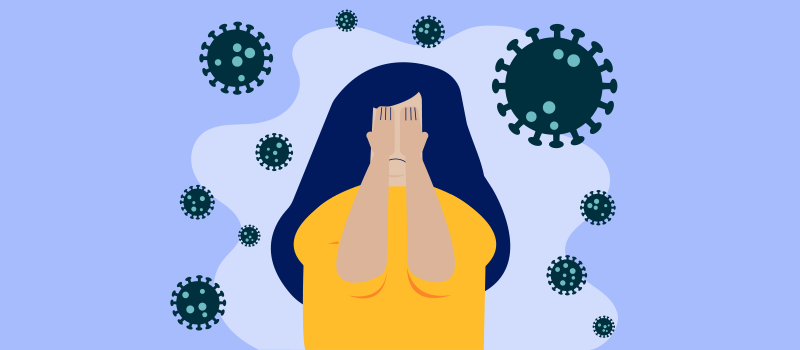
You develop a rash on your body and spend hours on the internet researching possible causes. A scratchy throat immediately makes you think of a serious medical condition like cancer. Your arm feels numb after sleeping on it, and you believe you are having a stroke.
If this sounds like something you or a loved one experiences, it could be health anxiety, also called illness anxiety disorder or hypochondria.
If you have health anxiety, even reassurance from a doctor and negative medical tests don’t stop the worrying. You’re unable to shake the feeling that something is wrong. In your mind, you believe something is going on with your body.
While some concern about your health is normal, healthy even, excessive preoccupation with your health can cause significant distress. Please continue reading to learn more about health anxiety, including how it is diagnosed and treated and what you should do if you have it.
What is health anxiety or illness anxiety disorder?
Health anxiety is a mental health condition that affects around 5% of people. It is characterized by a person imagining symptoms of illness or misinterpreting minor symptoms as serious illness. In other words, illness anxiety disorder causes otherwise healthy individuals to worry excessively about their health, even in the absence of symptoms or in the presence of minor physical symptoms.
People with health anxiety disorder tend to imagine the worst. They fear they have a serious medical condition like cancer, dementia, or HIV, rather than considering easily treatable medical conditions like strep throat or flu as an explanation for their symptoms.
The fear of serious, health-related problems can progress to the point of interfering with daily life. For example, it can lead people with health anxiety to waste time in emergency rooms and doctors’ offices, seek unnecessary and sometimes expensive testing, and be consumed by worry daily. Notably, the anxiety symptoms may not always be related to oneself but can also involve the health of loved ones.
What’s the difference between people with normal concern for their health and people with health anxiety?
As noted above, it is normal, healthy even, to be worried about your health occasionally. This helps you be vigilant for potentially serious symptoms, get regular health screenings, keep medical appointments, and get necessary testing done.
Medical professionals distinguish between health anxiety and normal concern for health by evaluating whether a person is frequently worried about minor or non-existent symptoms or whether they are occasionally worried about concerning symptoms. Health anxiety can cause physical symptoms such as chest pain, fast heartbeat, dizziness, headaches, and muscle aches.
If you feel consumed by excessive worry about your health to the point that it is disabling, you should see your doctor and get medical advice. This is especially true if you find it challenging to work, maintain relationships, and function on a daily basis because of your health-related anxiety symptoms.
Do I have health anxiety?
Some of the tell-tale signs of illness anxiety disorder include:
- Being fearful or anxious you’re sick even when you don’t have any symptoms.
- Imagining minor symptoms are a sign of serious illness.
- Feeling nervous about your health even after tests show you’re healthy and reassurance from medical professionals.
- Being preoccupied with illness.
- Spending unreasonable amounts of time seeking health information on the internet.
- Reading about a disease or hearing about someone’s illness and worrying you have it too.
- Repeatedly checking your body for signs of illness.
- Seeking health information from doctors frequently.
- Being unable to focus on work, enjoy time with family and friends, or participate in hobbies due to worries about being ill.
What causes health anxiety?
There are several possible reasons why a person may develop illness anxiety disorder.
Vulnerability
Some people are more vulnerable to developing mental health problems. This could be due to personality traits (a tendency for excessive worry or inability to cope with stressors), genetic factors (a familial predisposition to develop emotional problems), or life experiences (overprotective parents or exposure to serious illness or death while growing up).
Triggers
Sometimes, health anxiety may be triggered by internal or external factors and beliefs. This can include a poor understanding of symptoms or physical sensations in the body, mental stress, having a family member with illness anxiety disorder, severe illness or death of a loved one, or learning about a medical condition from the media or during medical training.
How do mental health professionals diagnose health anxiety?
Health anxiety is listed as a diagnosis in the DSM-5 (Diagnostic and Statistical Manual of Mental Disorders), a set of guidelines created by the American Psychological Association. Medical professionals diagnose what was previously called hypochondria as one of the following two conditions:
- Somatic symptom disorder in people with multiple symptoms or symptoms perceived as distressing.
- Illness anxiety disorder in people without any physical symptoms or mild symptoms.
Before arriving at a diagnosis of health anxiety disorder, a medical professional will perform a physical examination and order tests to rule out any severe illness. If it is determined that you’re healthy and you continue to worry about your health, your doctor may refer you to a mental health professional to treat illness anxiety disorder.
How is health anxiety treated?
The goal of treatment for illness anxiety disorder is to improve your psychological symptoms and allow you to work productively, maintain healthy relationships, and function well in daily life. The treatment for health anxiety usually involves cognitive behavioral therapy (CBT) and medications.
CBT is offered in a group setting or on an individual basis. It teaches you skills to manage your anxiety symptoms. During the therapy sessions, you learn to identify health-related worries, become aware of how worrying affects your behaviors, and learn ways to respond to these worries and cope with anxiety healthily. Other forms of therapy besides cognitive behavioral therapy may also be helpful in people with illness anxiety disorder.
If psychotherapy alone does not help your symptoms, your doctor may prescribe antidepressant medications such as selective serotonin reuptake inhibitors (SSRIs) for illness anxiety disorder (example, Prozac, Zoloft, Celexa, Paxil, and Lexapro). As with all medications, these drugs can cause side effects and drug interactions. You should work with your doctor to review your treatment options.
How can I stop my health anxiety?
You might think that getting a battery of tests is the easiest way to alleviate health anxiety and rule out a serious medical condition. But testing rarely affords lasting relief from illness anxiety disorder. Repeated testing, new health information, and reassurance from doctors that there is no serious illness does not usually make people with health anxiety disorders feel calmer. Rather than alleviating worry, excessive testing can reinforce health anxiety.
Interestingly, while some people seek repeated testing and frequent doctors visits for reassurance, others respond to illness anxiety disorder by avoiding testing altogether and ignoring physical sensations and symptoms. (They don’t want to hear any bad news). This is a dangerous approach because it can lead to a treatable but serious illness, for example, high blood pressure, going undiagnosed. The lack of regular health screenings can also lead to late diagnosis of a serious illness such as cancer.
The important thing is to know that illness anxiety disorder and all anxiety disorders are treatable. If you have any of the signs and symptoms of health anxiety, know that help is available and seek appropriate care from a mental health professional.
References:


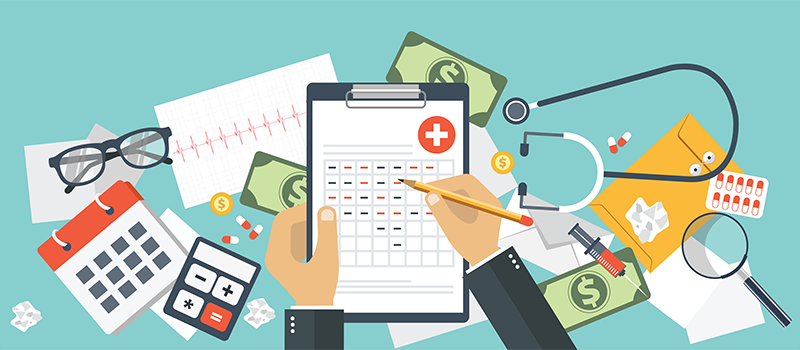
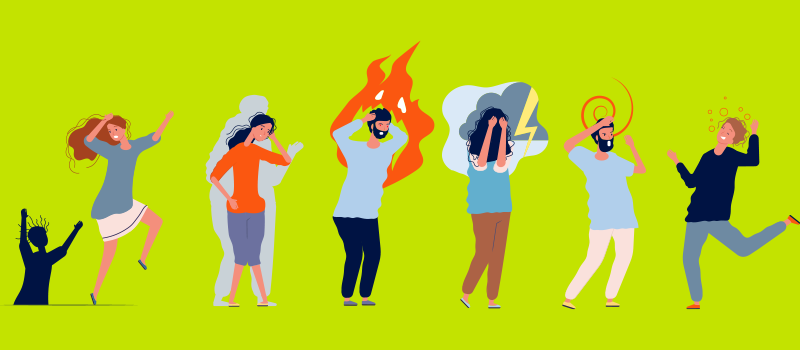

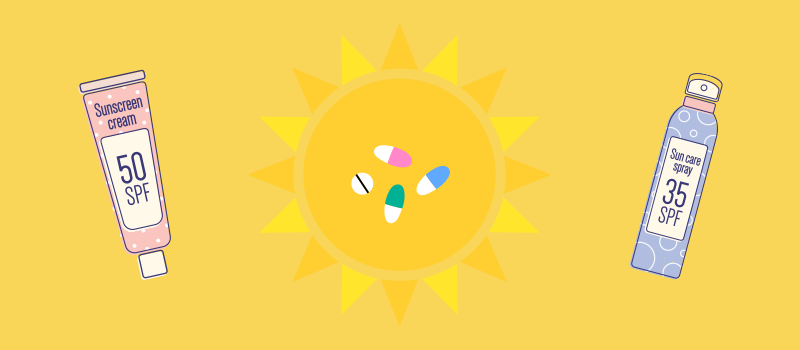
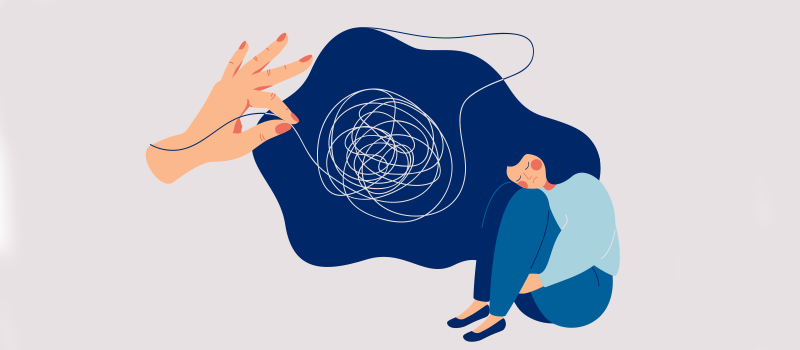
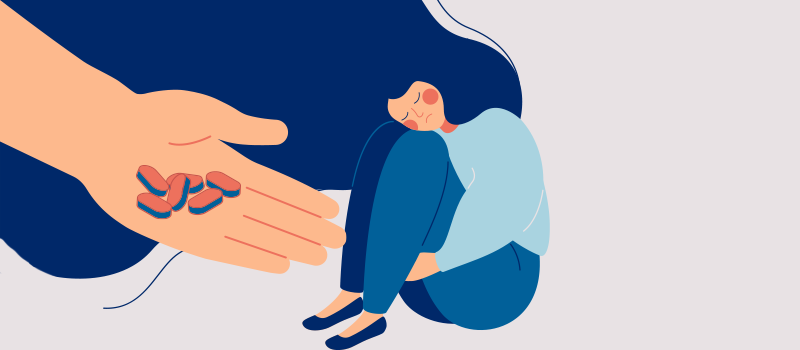




SOCIAL